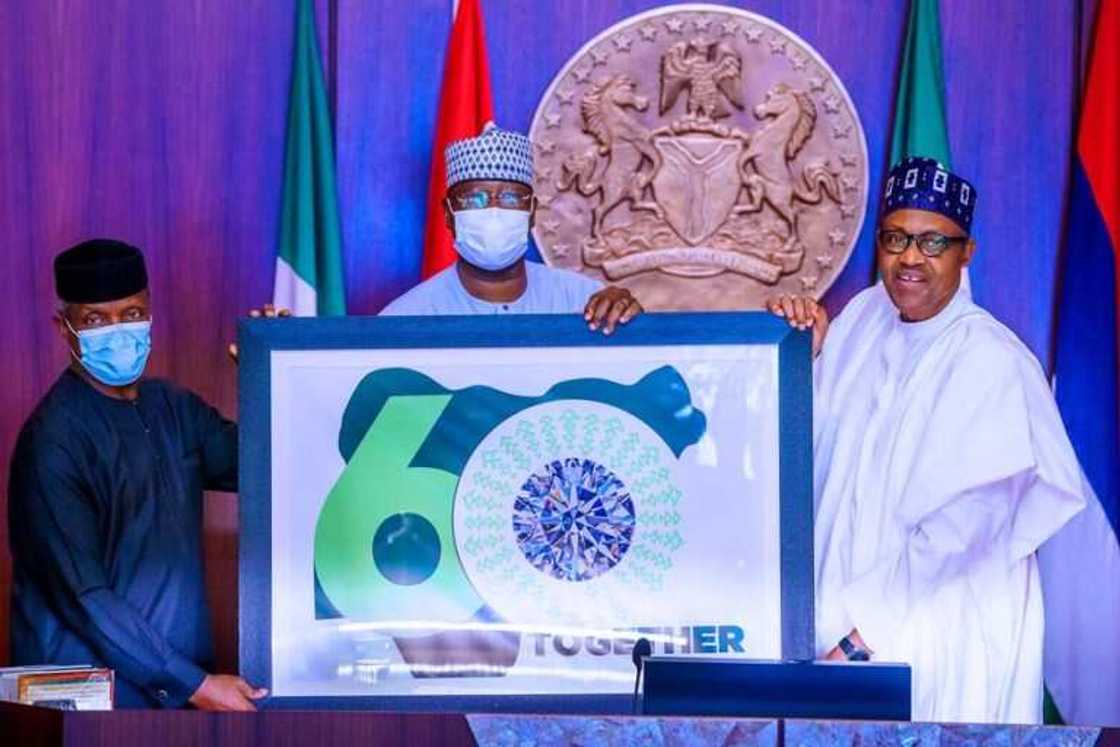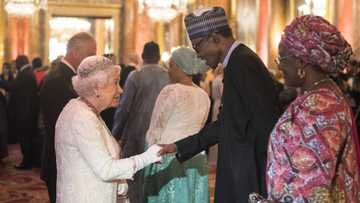Nigeria@60: How true is claim that Portuguese were first Europeans to Berth in Nigeria?
Though Nigeria was a colony of Britain, there have been recurrent historical claims that the Portuguese were the first Europeans to berth in the country, and that the “country” was first “discovered in the 1470’s by Portuguese adventurers.”
PAY ATTENTION: Click “See First” under the “Following” tab to see Legit.ng News on your Facebook News Feed!
As Nigeria celebrates its 60 years Independence Anniversary on Thursday, October 1, Legit.ng revisits the recurrent historical claims.

Source: Twitter
Nigeria, Africa’s most populous country and biggest economy, was a creation of the British imperialists.
What would later transform to colonisation began as economic relations between people who would eventually become known as Nigerians and the Europeans.
Mid-19th century to the early 20th century marked the transition from economic relations to colonisation.
Following the stoppage of the slave trade, the European traders turned colonizers agreed to “partition Africa among themselves”.
And by the 19th century, the Western Coast of Africa had been shared by the colonial powers, according to Cultural Policy in Nigeria by T. A. Fasuyi, a historical text published by the United Nations Educational, Scientific and Cultural Organisation (UNESCO) in 1973.
In the case of Nigeria, the Western Coast “comprising the major parts of the Fulani empire in the north, the Yoruba and Benin kingdoms and the Ibo, Calabar and Ibibio tribes were allocated to Britain.”
The territories occupied by the British were tagged protectorates; Colony and Protectorate of Lagos, the Protectorate of Southern Nigeria, and the Protectorate of Northern Nigeria.
Finally in 1914, the northern and southern protectorates were amalgamated into the Colony and Protectorate of Nigeria. The name Nigeria was suggested in the 1890s by British journalist Flora Shaw who later became the wife of colonial governor Frederick Lugard.
In 1960, Nigeria gained independence from Britain, officially marking the beginning of the country's journey as a sovereign nation.
Portugal or Britain?
To verify the veracity of claims about the Portuguese, Legit.ng consults A History of Nigeria, an authoritative book on the history of Nigeria by Toyin Falola and Matthew M. Heaton.
According to the book, long before the incursion of the Europeans into the West Coast of Africa, many ancient kingdoms had existed under the full administration of Africans. Popular among them include the Oyo Empire, Benin Kingdom, Kanem-Borno, and Sokoto Caliphate.
The Portuguese were the first Europeans to arrive on the West African coast by 1480, establishing a trading post with the Benin Kingdom where luxury goods such as textiles, pepper, and Gold were sold.
The book reads in part:
“The first Europeans to arrive on the west African coast were the Portuguese, who had established a trading post with the Benin kingdom at Gwarto (Ughoton) by 1480.”
Slavery was said to have occupied a small percentage of the Trans-Atlantic trade which was mainly commodities exchange then.
However, by the 17th and 18th centuries, slaves became the dominant item of Atlantic trade. Nevertheless, the Oba of Benin’s restriction of the sale of male slaves in 1550 despite the rising demand for slaves forced the Portuguese to search for other ports along the coast.
This, in turn, led to the growth of slave ports along the west of Benin (the Bight of Benin) and to the east, in the Bight of Biafra, which stretched from the Niger Delta to Calabar.
By the 19th century, slave trade with the Portuguese and other Europeans “had become integral aspects of the economies of states and societies throughout the greater Nigerian area.”
Questions about discovery
Meanwhile, by the 18th century, the British had displaced the Portuguese as leaders of the slave trade, setting the path for their eventual colonisation of the territories, another historical account by The Commonwealth states.
It must, however, be noted that prior to the arrival of the Portuguese and the eventual British colonisation, the territories on the western coast which would later become Nigeria had “previously existed as autonomous, independent states under indigenous leadership.”
Thus, it is erroneous to claim the Portuguese “discovered” the people on the West coast (now Nigerians). Also, the relationship between the Portuguese was mainly economic, not political.
Nigeria as a nation today is a creation of the British imperialists.
Mr Seun Williams, a PhD student (International History) at The Graduate Institute, Geneva, has stated that “records have it that the Portuguese were the first European peoples to reach Nigeria.”
Regarding the “discovery” claim, Mr Williams said:
“Discover? The thing is people no longer use this kind of terminology again just as it is no longer tenable to say that Mungo Park discovered River Niger.”
Conclusion
Though Portugal did not colonise Nigeria, the claim that the Portuguese were the first Europeans to berth in the country is correct.
Though there was no country called Nigeria at the time, there are historical records that the Portuguese were the first Europeans to make contact with the people on the West Coast of Africa in the 15th century, particularly the territory that would later become Nigeria. The re-naming of Eko as Lagos, a port city in Portugal is an illustration of the early influence of Portuguese culture on Nigeria’s western coast.
However, the claim that the Portuguese “discovered” Nigeria is erroneous. First, there was no country named Nigeria at the time. Nigeria as a nation is a creation of the British imperialists.
Second, the Portuguese met people with organised and independent indigenous administrations and only had economic relations with them until the British colonial invasion.
The researcher produced this article per the Dubawa 2020 Fellowship partnership with Legit.ng to facilitate the ethos of "truth" in journalism and enhance media literacy in the country.
What's the most exciting thing about being a Nigerian? | Legit TV
Source: Legit.ng



